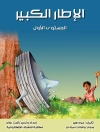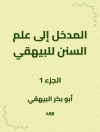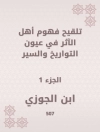In ‘The Boys’ and Girls’ Plutarch, ‘ Plutarch presents a captivating collection of biographical sketches, distilling the essence of exemplary figures from classical antiquity for a youthful audience. Written in a clear, engaging narrative style, this compilation aims to inspire moral virtues through the lives of historical characters, emphasizing themes such as bravery, wisdom, and justice. Plutarch’s work serves as an introduction to the values espoused by ancient Greek and Roman cultures, filtered through the lens of a moral educator, making it accessible and relevant for children and adolescents. The choice of anecdotes is particularly insightful, aiming to nurture virtues that resonate with young readers. Plutarch, a Greek philosopher and historian from the first century AD, was deeply influenced by his Stoic philosophy and the moral teachings of his predecessors. His overarching goal was to provide ethical instruction through historical narratives, reflecting his belief in the importance of character and moral virtue in the development of individuals. In crafting this particular volume for younger audiences, Plutarch sought to cultivate virtuous citizens by instilling admiration for heroic lives and ethical conduct. ‘The Boys’ and Girls’ Plutarch’ is highly recommended for educators, parents, and young readers alike. Its accessible style and rich moral content make it an ideal introduction to classic literature, serving both as an engaging read and a valuable resource for character development. Encourage the young minds in your life to explore these tales of heroism and virtue, which have resonated through the ages.
Over de auteur
Plutarch, born in Chaeronea, Boeotia, in the 1st century CE, was a Greek historian, biographer, and essayist known for his parallel lives of famous Greeks and Romans, an endeavor that cast a long-reaching shadow on the disciplines of history and biography. His seminal work, ‘Parallel Lives, ‘ has informed not only how historical figures are profiled but also how moral judgments are enshrined in biographical narratives. Largely considered a Middle Platonist, Plutarch imbued his work with philosophical contemplations that reflected on the character and ethical choices of his subjects. Although best known for his biographical works, Plutarch was a prolific writer, encompassing discussions on religious, ethical, and philosophical topics. While ‘The Boys’ and Girls’ Plutarch’ was designed as an adaptation of his ‘Parallel Lives’ for younger readers, his writing was characterized by a scholarly gravitas yet accessible exposition that made his thoughts widely influential beyond academic circles. His works have been translated and studied extensively, forming a cornerstone of classical education and literary criticism. Plutarch’s influence extends into the Renaissance where his writings led to a rebirth of interest in classical antiquity and their continued relevance can be discerned in the contemporary appreciation for historical nuance and portraitures of influential figures.












